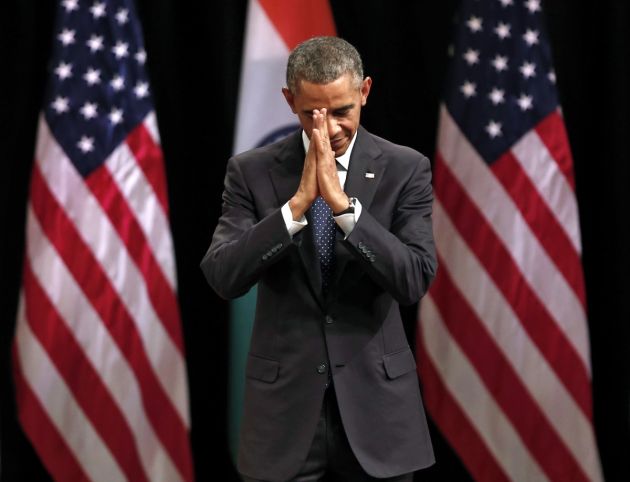Religion in public has never faced greater risk, says Vatican official

Freedom of religion or belief is the decisive test for respect of all other fundamental freedoms, yet while violent harassment of Christians hits areas in the Middle East and Africa, Western nations face a different type of oppression, says a top Vatican official.
Nations in the West are marked by the push to eliminate religion from public life, said Monsignor Antoine Camilleri, the Holy See's under-secretary for relations with the States on Dec. 14.
"To act and speak out publicly as a committed Christian in one's professional life has never been more threatened," said Camilleri.
He delivered the keynote address at the opening of a conference hosted by the Organization for Security and Co-operation in Europe (OSCE) in Vienna titled "Towards a Global Compact for Safe, Orderly and Regular Migration: A Regional Perspective."
"Freedom of religion or belief is the litmus test for respect of all other human rights and fundamental freedoms, since it is their synthesis and keystone," he said.
Religious freedom is the "litmus test" of respect for all other fundamental human rights, since it is their "synthesis and keystone," the Vatican's representative said.
He noted that that safeguarding such freedom guarantees that other rights will also be ensured for all people, regardless of belief, since it involves consciousness and dignity.
INTOLERANCE AGAINST CHRISTIANS
Discrimination and intolerance against Christians, which target men and women, not because of their race, sex or language, but because of their faith, represent a violation and a direct challenge to the freedom of religion or belief,
Turning to the "barbaric persecution of Christians" in the Middle East, Camilleri said "the atrocities committed against Christians in Syria and Iraq are so horrific that words cannot adequately respond, and their plight must not be forgotten."
He noted the gruesome bombing of the St. Peter's Coptic Orthodox cathedral in Cairo Dec. 11 that killed at least 25 people, Catholic News Agency reported.
The Vatican aide said it offers proof of the "shadow of violent extremism and terrorism" in the country. Yet, he also cautioned that such persecution is also taking place "at the very doorstep" of the OSCE headquarters in Vienna.
"We must recognize that discrimination and intolerance, including hate crimes, impact many Christians and Christian communities, despite a frequently encountered notion that in this part of the world such discrimination or intolerance does not occur," he said.
Simply belonging to the majority religion seems to exclude Christians from being considered victims of intolerance, Camilleri said, but stressed that such a view "is not based on reality."
"The continuous attacks against Christian churches and religious buildings, time and time again...easily disprove the notion that Christians do not suffer intolerance," he explained.
He cited many cases of premeditated acts of destruction against churches and religious spaces and symbols, including crosses and other Christian artifacts, as well as the theft and "sacrilegious misuse" who what Christians consider holy, as an example.
All of these, Camilleri said, are examples "of not only disrespectful, but intolerant, and in most cases criminal acts committed with a bias motive."
He turned to new patterns of intolerance popping up in Western nations and quoted the last pontiff, Pope Benedict XVI, who said that religion "is not a problem for legislators to solve, but a vital contributor to the national conversation."
"There are those who would advocate that the voice of religion be silenced, or at least relegated to the purely private sphere," he said.
DISCOURAGING CHRISTMAS
Camilleri said others argue "that the public celebration of festivals such as Christmas should be discouraged, in the questionable belief that it might somehow offend those of other religions or none."
A recent example came when a priest who serves as chaplain of the cemetery in the Italian city of Cremona desisted from setting up a traditional Nativity scene for fear of offending Muslims and those of other faiths.
Camilleri said others "paradoxically" argue with the intention of eliminating discrimination that Christians who have public profiles "should be required at times to act against their conscience,"
Such examples are part of "what may rightly be called 'anti-Christian sentiment,'" and represent "a new form of intolerance and discrimination against Christians...based on setting the freedom of religion or belief against some general notion of tolerance and nondiscrimination."
When it comes to tolerance and non-discrimination, such matters should never be used or interpreted in a way that would restrict religious freedom or belief, he said.
"Every right entails obligations and duties," he said. "Therefore, a self-professed Christian cannot claim that freedom of religion or belief entitles him to call for violence against non-believers."